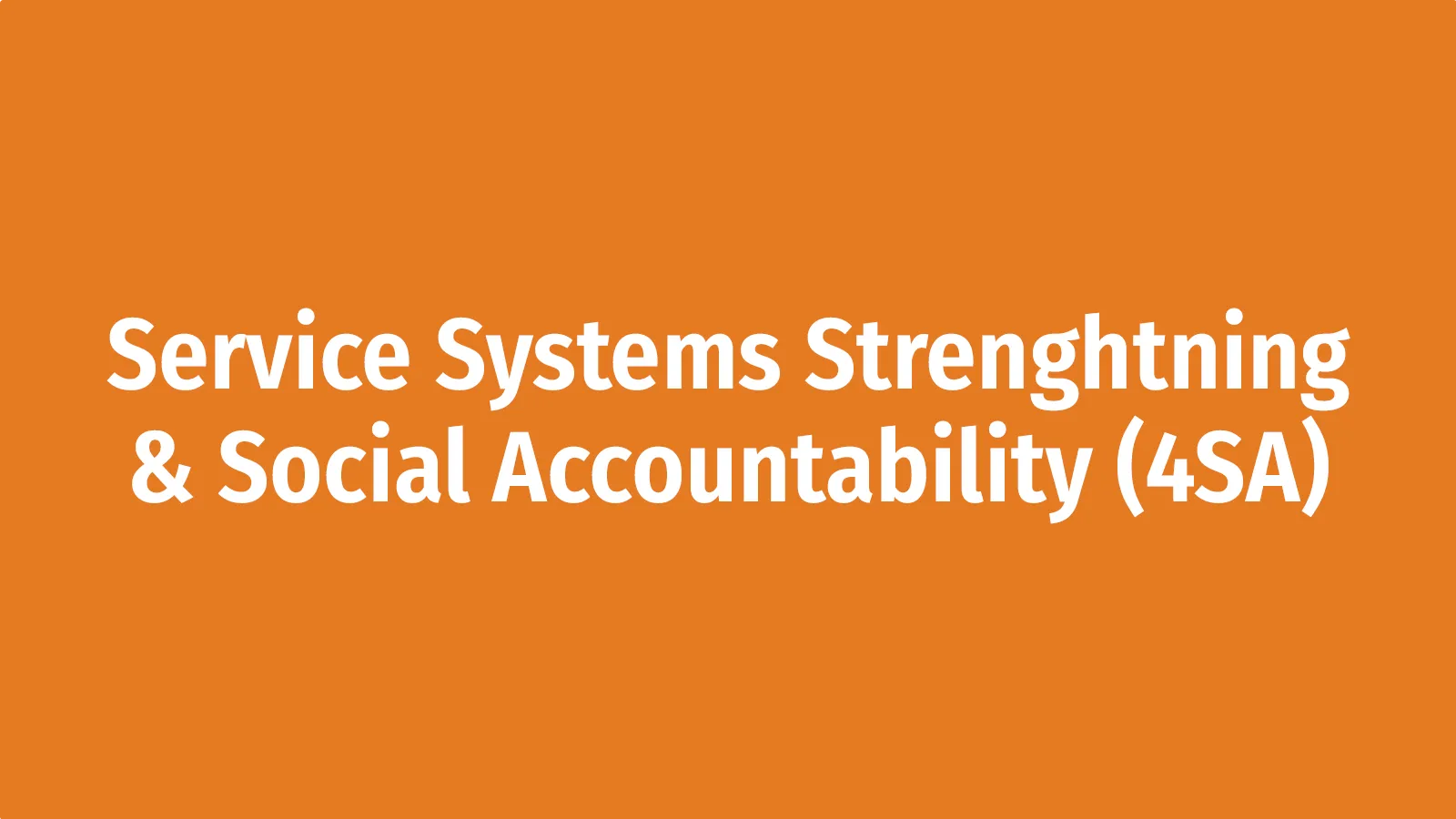Background
4SA is one of six CARE pathways to impact at scale. CARE’s 4SA approach is focused on equality for women and girls, citizen-centered, and rights-based approaches that are equal and inclusive and hold power holders to account.
4SA building blocks
CARE’s service systems strengthening framework has six interdependent building blocks. Building blocks are a simple way of defining the core functions of a service systems system that need to operate effectively, both independently and in relation to all other building blocks, for the service system to deliver its objectives. These building blocks prioritize and integrate approaches to address unequal power structures that sustain inequality for women and girls.
- People and skills: Service users/citizens and duty bearers have the knowledge, skills, and capacities to demand and deliver equal, high-quality, accountable services.
- Information, negotiation, and accountability: Inclusive spaces for citizens and power holders to dialogue, give feedback, and negotiate, and to collectively plan and be held accountable, based on equal access to relevant information and analysis.
- Institutional leadership, governance, and coordination: Institutions have the policy, regulatory and legislative frameworks; clarity of mandates; coordination and communication mechanisms in place to embed and scale approaches advancing women and girls that deliver equal, high-quality, accountable services for all.
- Service delivery, infrastructure, and resources: Institutions have service delivery models, infrastructure and technology, quality standards, natural resource and asset management, mediation, and protection mechanisms in place to deliver equal, high-quality, accountable services and rights for all.
- Planning and financing: Institutional strategic planning, budgeting (to support women and girls), and financing mechanisms deliver equal, high-quality, accountable services for all.
- Community and social norms: Social norms at the household and community level support active participation in public life for all and promote social and political incentives to serve and be accountable to the rights of all.

